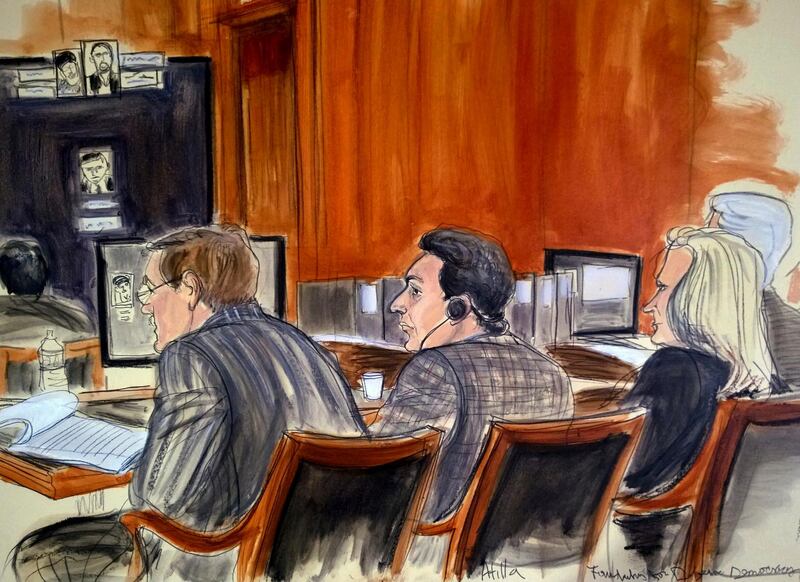The fate of a Turkish banker accused of conspiring to help Iran evade US financial sanctions will soon rest with an American jury, which must choose between duelling portrayals of him as either the architect of an international money-laundering scheme or a "pawn" in the wrong place at the wrong time.
After more than three weeks of evidence, prosecutors and defence lawyers on Tuesday delivered their final pleas in the trial of Mehmet Hakan Atilla, a 47-year-old executive at Turkiye Bank Halkasi AS, a large state-owned Turkish bank that US authorities allege was the focus of the plot to aid Iran. Jurors in a Manhattan federal court are scheduled to begin deliberating on Wednesday.
Mr Atilla is accused of trying to help Iran tap billions of dollars in revenue from overseas oil sales from 2012 to 2016 that should have been beyond its reach, as the US increasingly tightened sanctions on the country in retaliation for its nuclear development programme and in an effort to force it to the negotiating table.
"It’s impossible to believe Mr Atilla had any doubt about what was going on at his bank," US prosecutor Michael Lockard said in urging jurors to find him guilty of conspiracy, money laundering and bank fraud. "Mr Atilla is guilty of the offences he’s charged with."
Nine people have been charged, including other Halkbank executives and Turkish government officials, but Mr Atilla was the only one on trial. Iranian-Turkish gold trader Reza Zarrab, who was once the chief defendant, pleaded guilty and testified against Mr Atilla in a bid for leniency. The other defendants have avoided US arrest.
_______________
Read more:
Turkish banker denies helping Iran evade US sanctions
Gold trader tells court he made $150m from scheme to allow Iran to avoid US sanctions
_______________
Mr Atilla’s lawyer, Victor Rocco, called the case "the Reza Zarrab show", saying prosecutors had presented extensive evidence about the involvement of Mr Zarrab and others but not enough to convincingly connect Mr Atilla to the scheme.
During seven days on the witness box, Mr Zarrab repeatedly implicated Mr Atilla, placing him in meetings where the sanctions-evasion plans were discussed and saying he devised key portions. Prosecutors also introduced wiretapped phone calls in which Mr Zarrab and others discussed Mr Atilla’s alleged role.
Still, Mr Atilla was at times a seemingly peripheral figure, and much of the government’s evidence against him was circumstantial. The US relied heavily on Mr Zarrab, who acknowledged lying to Mr Atilla in some instances and admitted that Mr Atilla didn’t know the full details of the conspiracy. In some wiretapped phone calls played for jurors, Mr Zarrab complained that Mr Atilla blocked transactions or inhibited the plot.
The defence also assailed Mr Zarrab as a liar.
But prosecutors pointed to at least six wiretapped calls directly between the two men as corroborating evidence. In one of them — about the need to make sure customs forms used to cover up transactions looked legitimate — Mr Atilla is heard saying to Mr Zarrab, "Tell your guys to make sure the numbers match".
Mr Atilla took the unusual step of testifying in his own defence, saying Mr Zarrab lied about his presence at meetings, and he denied any involvement.
"The decision to take the witness box by a defendant in a criminal case is not the act of a guilty man," Mr Rocco said. "It is the act of a man who believes he’s innocent and wants to proclaim his innocence to the entire world."






